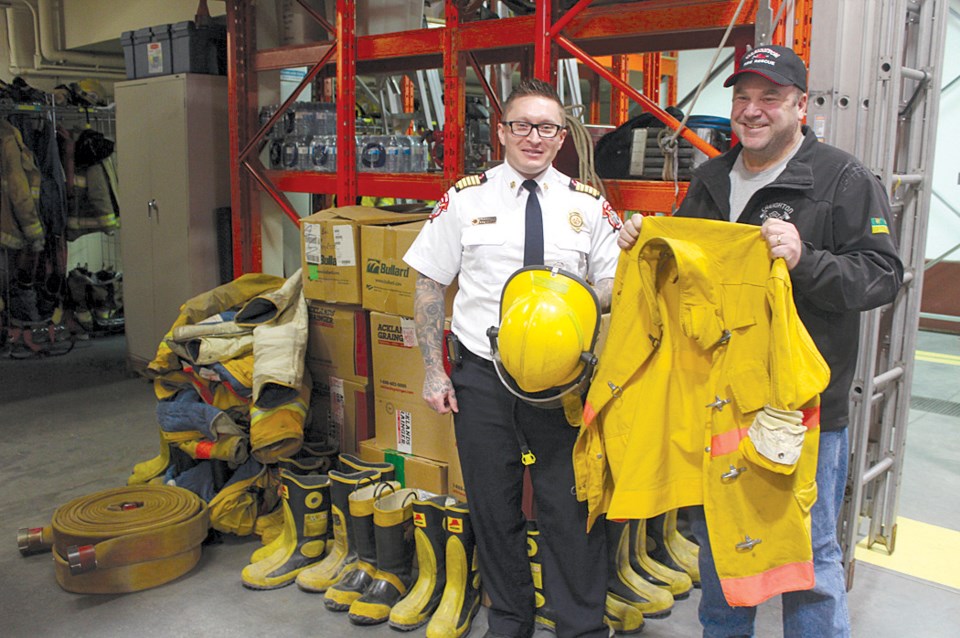One fire department’s junk stands to be another fire department’s treasure.
The Creighton Volunteer Fire Department has donated several units of expired equipment to the Flin Flon Fire Department. While the gear is considered expired by the original manufacturer, each piece remains in suitable condition for training.
The equipment, which includes turnout gear, helmets, pants and boots, will be used to train firefighters in isolated communities in northern Manitoba.
Fire crews in Sherridon, Moose Lake, Brochet and God’s Lake Narrows will use the gear for training.
“They have a limited quantity of gear within their fire halls,” said Chad Cooper, fire chief with the Flin Flon Fire Department.
“With the travel commute, they can’t fly with their gear. They’re now set up so that they can fly in, we can fully accommodate them with what they’ll need for fire training.”
Cooper recalled that equipment became so scarce for one department that firefighters began sharing vital gear, like boots and jackets, because there was not enough for every member to have their own.
“They only had a few sets of boots to share between the nine of them.”
The equipment donation is part of a training program started by the Flin Flon Fire Department last year to train firefighters in small, isolated locations. The program is organized with Indigenous and Municipal Relations (IMR) and teaches firefighters the ins and outs of basic municipal firefighting, including ladder and hose usage and equipment use.
“At the end of the five days, they’ll have basic fire knowledge,” said Cooper.
Two sessions have been held so far, with plans to hold further training sessions in the future.
“Originally, it started with just Sherridon,” said Cooper. “We did such a good job with Sherridon that now IMR said ‘oh, you ought to do more!’”
Cooper and Wenger also hope to extend the training sessions to communities in Saskatchewan, including Sandy Bay and Pelican Narrows.
Most firefighters in the far north function as double duty officers with local fire departments and provincial wildfire agencies. While working with provincial fire crews allows them to receive some training, Cooper said the provincial training overlooks some basic aspects of local firefighting.
“They work for Sustainable Development in the summer and they go back to their communities in the winter time. Then, they don’t have any structure experience or how to work the truck or pump water,” he said.
Cooper believes donating the used gear and training is the best way for northern firefighters to become highly capable.
“Back in the ‘90s, the government’s approach was to buy really expensive stuff but not invest in training. Everything kind of fell apart,” he said.
“Now, they’re getting more logical, saying, ‘we’ll train you up so you understand it, then we’ll get you the equipment.’ That’s a better approach, more efficient.”




